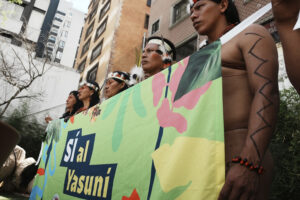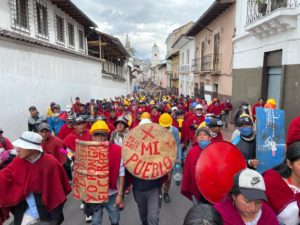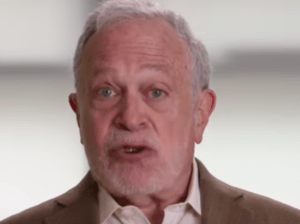British Judge Upholds Arrest Warrant for Julian Assange
Although Swedish prosecutors dropped sex crime charges against the WikiLeaks founder in 2017, saying there was no prospect of extraditing him to Sweden in the near future, the judge is holding him accountable for jumping bail.LONDON—A British judge on Tuesday upheld a U.K. arrest warrant for WikiLeaks founder Julian Assange, leaving him still a wanted man in the country where he has spent more than five years inside the Ecuadorean Embassy.
Judge Emma Arbuthnot rejected a call from Assange’s lawyers for the warrant to be revoked because he is no longer wanted for questioning in Sweden over alleged sex crimes. It was issued in 2012 for jumping bail.
“I am not persuaded the warrant should be withdrawn,” Arbuthnot told lawyers, journalists and Assange supporters gathered at London’s Westminster Magistrates’ Court.
Assange, 46, has been holed up in Ecuador’s embassy in London since he took refuge there in June 2012 to avoid extradition to Sweden. Swedish prosecutors at the time were investigating allegations of sexual assault and rape made by two women in 2010.
Swedish prosecutors dropped the case last year, saying there was no prospect of bringing Assange to Sweden in the foreseeable future. But Assange was still subject to the British warrant for breaching his bail conditions in 2012.
Arbuthnot said in her ruling that “the administration of justice can be undermined by defendants who fail to attend” court while free on bail.
“Mr. Assange is not present in court today,” she noted.
The judge said that if Assange came to court, he would be able to argue his case and “put an argument for reasonable cause” for breaching his bail conditions.
After the ruling, Assange’s lawyer, Mark Summers, tried to persuade the judge to hold a hearing on the bail-jumping case in Assange’s absence. She didn’t immediately agree.
Had the judge ruled in Assange’s favor, he would have been free to leave the embassy without being arrested on the British warrant.
However, Assange suspects there is a secret U.S. indictment against him for WikiLeaks’ publication of leaked classified American documents, and that the U.S. authorities will seek his extradition.
Earlier this month, Ecuador said it had granted the Australian-born hacker citizenship, as the South American country tried to unblock the stalemate that has kept Assange as its houseguest for five-and-a-half years.
Ecuador also asked Britain to grant him diplomatic status. Britain refused, saying “the way to resolve this issue is for Julian Assange to leave the embassy to face justice.”
British prosecutors had opposed the removal of the warrant, saying Assange shouldn’t be immune from the law simply because he has managed to evade justice for a long time.
Extradition lawyer Rebecca Niblock of Kingsley Napley said before the ruling that Assange’s legal argument was a longshot.
“Failing to surrender to bail is like insulting the court’s authority” and unlikely to go down well with the court, she said.
___
Danica Kirka contributed to this story.
Your support matters…Independent journalism is under threat and overshadowed by heavily funded mainstream media.
You can help level the playing field. Become a member.
Your tax-deductible contribution keeps us digging beneath the headlines to give you thought-provoking, investigative reporting and analysis that unearths what's really happening- without compromise.
Give today to support our courageous, independent journalists.





You need to be a supporter to comment.
There are currently no responses to this article.
Be the first to respond.